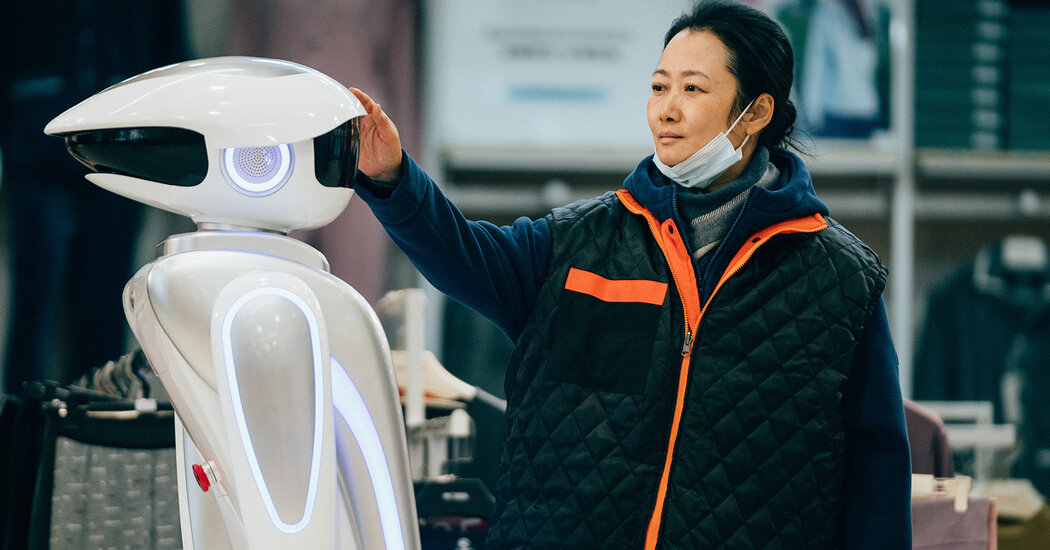
In “Caught by the Tides,” the Chinese filmmaker Jia Zhangke tracks a woman, a couple and a country across two tumultuous, transformational decades. As emotionally effective as it is formally brilliant, it draws on a trove of material — both fiction and nonfiction — that Jia began shooting in 2001 while working on another movie. He continued to document a dizzyingly changing China, a heroic project that has finally resulted in “Caught by the Tides,” a tour de force that is at once an affecting portrait of a people in flux and a soulful, generous-hearted autobiographic testament from one of our greatest living filmmakers.
Jia has directed more than a dozen feature-length movies since his 1997 drama “Pickpocket,” about a low-level thief, but the impoverished state of foreign-language distribution in the United States means that his work tends to quickly slip in and out of art houses here before heading to living rooms. He’s a rock star on the international festival circuit, however, and a favorite of the Cannes Film Festival, where his movies regularly screen in competition. Jia won the best screenplay award at Cannes for his 2013 masterpiece “A Touch of Sin,” but he tends to be overlooked by juries because while his movies aren’t difficult, they don’t offer obvious pleasures. They’re thoughtful, and they need to be watched thoughtfully in turn.
That’s true of “Caught by the Tides,” which follows a character who’s been featured in some of Jia’s earlier features, Qiaoqiao — Zhao Tao, Jia’s wife and longtime star — a willowy stunner with sharply planed cheekbones and a steady, penetrating gaze. That gaze is especially crucial here because while Zhao’s star charisma immediately commands your attention, her character never says a word. Instead, Qiaoqiao texts and she watches, observing the world and the people in it with eyes that, at times, flash with amusement and anger. When she’s with lover, Bin (Li Zhubin), her eyes also pool with tears that he doesn’t deserve.
Zhao is a sensitive, subtly expressive screen performer who can convey a world of feeling with a single look. Even so, a heroine who can speak but doesn’t could have been risky for Jia because her silence could drain the character of complexity and, importantly, a sense of female agency. Here, though, everything that needs to be said is said both in bits of conversation that fill in the elliptical story and in the many documentary passages, which makes her a stand-in for Jia. Bin, a small-time hood more interested in money than in Qiaoqiao, does speak, yet his words are invariably less eloquent than her (and Jia’s) quiet.
